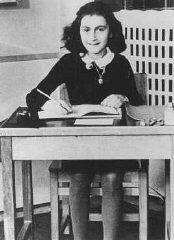You searched for: ���������������������������������������������fuk7778���your
<< Previous | Displaying results 111-120 of 163 for "���������������������������������������������fuk7778���your" | Next >>
-
Boleslaw Brodecki describes hangings in a labor camp and their impact on the prisoners
Oral HistoryBoleslaw and his older sister were raised in a Jewish section of Warsaw. The Germans attacked Warsaw in September 1939. Boleslaw's father did not want to leave his ill relatives behind, so Boleslaw and his sister escaped on a train heading for the Soviet border. The Germans invaded Soviet territories in 1941, and in 1942 Boleslaw was imprisoned in a forced-labor camp. He was deported to the Theresienstadt ghetto, where he was liberated by Soviet forces in 1945.
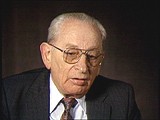
-
Ernest G. Heppner describes learning about the Holocaust and the fate of his relatives
Oral HistoryErnest's family owned a factory that made matzah, the unleavened bread eaten during Passover. In February 1939, three months after Kristallnacht (the "Night of Broken Glass" pogroms), Ernest and his mother fled to Shanghai, one of few havens for refugees without visas. His father and sister stayed behind in Germany; they perished during the Holocaust. A brother escaped to England. Ernest and his mother found work in Shanghai. In 1947, he came to the United States with his wife, whom he met and married in…
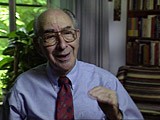
-
Nesse Galperin Godin describes how she met her husband after the war
Oral HistoryNesse's family had a dairy business. The Germans occupied Lithuania in 1941 and established a ghetto in Siauliai. Nesse lived in the ghetto until 1943 when she was old enough to work. In 1944 Nesse, her mother, and a brother were deported to the Stutthof camp near Danzig. Nesse worked in several Stutthof subcamps until January 1945, when the inmates were put on a death march. She was liberated by the Soviets in March. Nesse, her mother, and two brothers survived, and she arrived in the United States in…
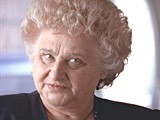
-
Robert Mills Donihi describes witnesses at the postwar US trials in Germany
Oral HistoryIn 1945, Robert Mills Donihi was practicing law in Nashville, Tennessee. He accepted a government assignment to Tokyo where he worked on the trial of 28 high-ranking Japanese officers. After a year, he left for Germany, and arrived in Nuremberg in January 1947. Donihi was a member of the legal team at the postwar US trials in Germany, serving as both an interrogator and a prosecutor.
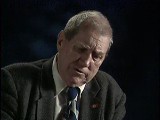
-
John Dolibois describes interrogating German prisoners in preparation for postwar trials
Oral HistoryJohn Dolibois immigrated to the United States in 1931 at the age of 13. After graduating from college, Dolibois joined the 16th Armored Division of the US Army. Due to his German language skills, he became involved in military intelligence. He returned to Europe in this capacity toward the end of World War II. Dolibois interrogated German prisoners of war, including leading Nazis, in preparation for the postwar trials of war criminals. He was later appointed US ambassador to Luxembourg, his birthplace.
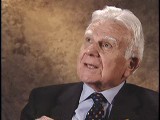
-
Sam Spiegel describes conditions on board a ship to the United States
Oral HistoryIn 1942, Sam was forced into a ghetto in his hometown and assigned to work in a munitions factory. In 1944 he was transported to Auschwitz and then forced to work in a train factory. He survived eight days on a death march after the evacuation of Auschwitz by the Nazis. He was liberated by Soviet units in January 1945. He lived in a displaced persons camp in Germany where worked for the United Nations Relief and Rehabilitation Administration. In 1947, he immigrated to the United States.
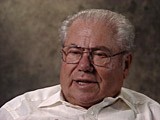
-
Gerda Haas describes prewar Jewish community life in Ansbach
Oral HistoryGerda was raised in a religious family in the small town of Ansbach, Germany, where her father was the Jewish butcher. She attended German schools until 1936, and then moved to Berlin to attend a Jewish school. She returned to her hometown after Kristallnacht in November 1938. Her family was then ordered to move to Munich, and in July 1939 her father left for England and then the United States. He was unable to arrange for the rest of his family to join him. Gerda moved to Berlin in 1939 to study nursing.…
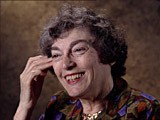
-
Leon Bass describes his experience as a Black soldier
Oral HistoryLeon Bass was born in Philadelphia, PA in 1925. He joined the US Army in 1943 and served as a member of the all-Black 183rd Engineer Combat Battalion attached to General Patton's Third Army. Leon's unit was involved in the Battle of the Bulge as well as the liberation of Buchenwald. After the war, Leon went on to receive his doctorate, teach, and speak about the Holocaust and racism. In this interview, Leon describes the his frustration with the discord between the United State's condemnation of Nazi…
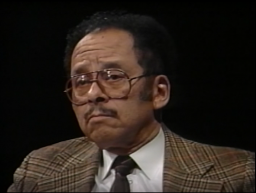
-
Le Chambon-sur-Lignon
ArticleFrom 1940 to 1944, Le Chambon-sur-Lignon and neighboring villages provided shelter to some 5,000 people, among them Jews fleeing persecution.
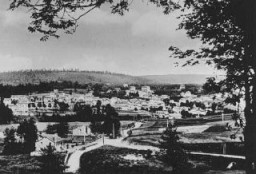
-
Anne Frank: Diary
ArticleThe Diary of Anne Frank is often the first exposure readers have to the history of the Holocaust. Learn about Anne's diary, including excerpts and images.
